持続可能なサトウキビストロー: ホテル向け B2B ソリューション & カフェ
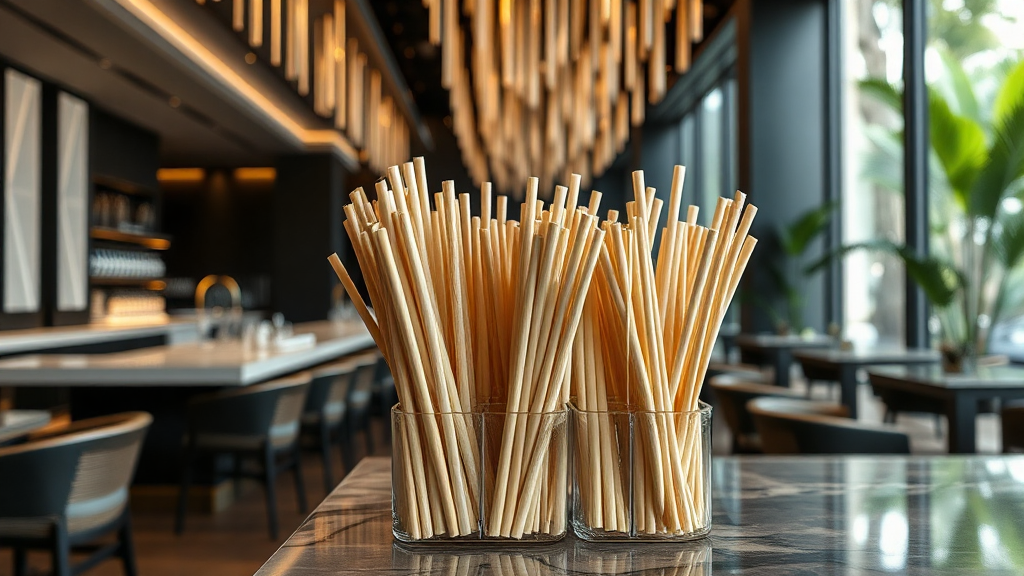
Introduction: Plastic Bans and Embracing Eco-Friendly Sugarcane Straws Benefits
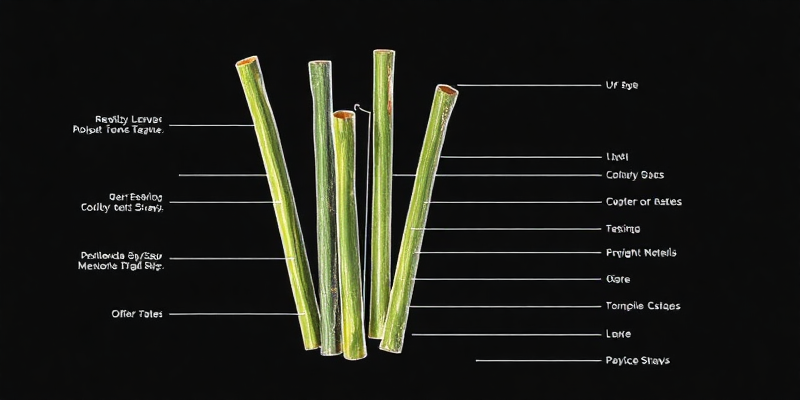
Picture this: It’s a busy Friday afternoon at your beachfront hotel in Bali. Guests are sipping tropical cocktails by the pool, enjoying the ocean view. But there’s a problem – those plastic straws in their drinks? They’re now illegal. Indonesia, like many countries worldwide, has implemented strict plastic bans, with hefty fines for businesses that don’t comply.
This scenario is playing out acros the globe. From California to Costa Rica, Australia to Amsterdam, single-use plastic legislation is tightening. For hotels, cafes, and restaurants, adapting isn’t just good ethics – it’s essential busines practice.
“We had to pivot overnight,” explains Marco, a boutique hotel manager in Barcelona. “Our customers were asking questions about our plastic use before the government even announced the ban. We needed a solution that worked for cocktails, smoothies, and coffee drinks without compromising on the customer experience.”
The plastic straw problem is more significant than many realize. Americans alone use approximately 500 million plastic straws daily – enough to circle the Earth 2.5 times. Each conventional plastic straw takes up to 200 years to decompose, creating a staggering environmental burden.
Enter sugarcane straws – a revolutionary alternative that’s quickly becoming the go-to solution for forward-thinking hospitality businesses. Unlike paper straws that often dissolve mid-drink, or metal straws that require rigorous cleaning protocols, sugarcane straws offer durability, sustainability, and a natural aesthetic that enhances beverage presentation.
Explore the comprehensive advantages of sugarcane straws for your hospitality busines – they’re not just environmentally responsible; they’re busines-smart. As we’ll explore, these biodegradable alternatives represent the perfect intersection of customer satisfaction, regulatory compliance, and environmental stewardship.
Regulatory Compliance: Certifications for Eco-Friendly Sugarcane Straws
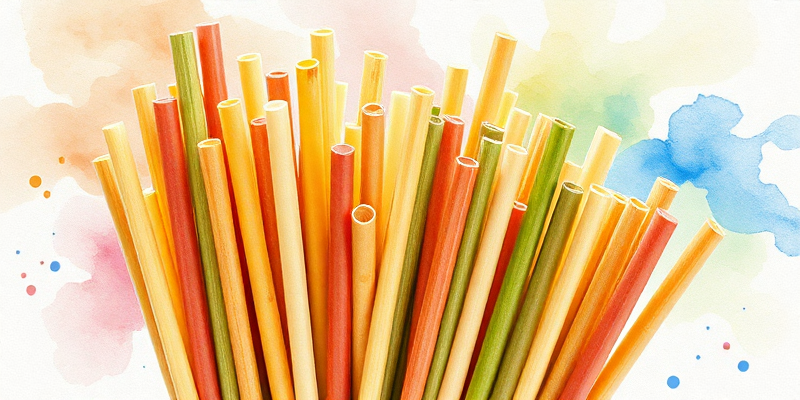
When sourcing sustainable alternatives for your busines, regulatory compliance isn’t just a box to check—it’s critical protection for your brand and customers. With the global focus intensifying on food safety and environmental claims, having properly certified eco-friendly products is non-negotiable.
According to recent industry data, businesses caught using non-certified food contact items face average fines of $7,500 per violation in the United States alone, with potential for multiple violations per inspection. Beyond the financial penalty, the reputational damage can be far more costly.
NatureBioEco’s sugarcane straws come with comprehensive certification credentials that protect your busines on multiple fronts:
**FDA Certification**: The Food and Drug Administration sets strict guidelines for materials that come into contact with food and beverages. FDA-certified sugarcane straws ensure that no harmful chemicals leach into drinks, providing peace of mind for both businesses and consumers. This certification is particularly important for hot beverages, where heat can accelerate chemical transfer from low-quality materials.
**LFGB Certification**: This German food safety standard is often considered even stricter than FDA requirements, providing an additional layer of assurance for international businesses. LFGB certification examines everything from raw materials to production processes, ensuring the highest safety standards.
**Home Compostability Verification**: Unlike many “biodegradable” products that require industrial facilities, home compostable certification means these straws break down in standard composting conditions. This allows businesses to make accurate environmental claims without risk of greenwashing accusations.
“When we switched to sugarcane straws, we needed documentation for our sustainability audits,” explains Sophia, a procurement manager for a hotel chain. “Having properly certified products made compliance reporting straightforward and protected us from potential liability issues.”
Discover why hotels worldwide are choosing certified sustainable straws for their operations. With regulatory landscapes rapidly evolving, staying ahead with fully compliant products isn’t just good practice—it’s smart busines strategy.
How Eco-Friendly Sugarcane Straws Compare to Other Eco Alternatives

In the increasingly crowded marketplace of sustainable drinking straws, decision-makers need clear, comparative information. Let’s break down how sugarcane straws stack up against other popular alternatives:
| 代替 | 耐久性 | ユーザーエクスペリエンス | Eco-Credentials | 価格帯 | Maintenance |
|---|---|---|---|---|---|
| ————- | ———— | ————– | ————– | ————- | ————- |
| サトウキビストロー | 2-3 hours in drinks | 自然な感触、味移りなし | Home compostable, biodegrades in 90 days | $$$ (mid-range in bulk) | No cleaning required |
| 紙ストロー | 柔らかくなる前に30〜60分 | Often becomes soggy, can affect taste | Biodegradable but requires more processing | $$ (cheap in bulk) | No cleaning required |
| PLA “Corn” Straws | プラスチックに似たもの | Good but petroleum-like feel | 産業用堆肥化が必要 | $$ (cheap in bulk) | No cleaning required |
| 金属ストロー | 不定 | Conducts temperature, teeth sensitivity | Reusable but high production impact | $$$$ (high initial investment) | Requires thorough cleaning |
| 竹ストロー | 1-2 hours in drinks | Natural texture, slight taste | Biodegradable, renewable resource | $$$$ (expensive) | Requires cleaning between uses |
According to a study published in the Journal of Cleaner Production, sugarcane-based products require 80% les energy to produce compared to their plastic counterparts, giving them a significant advantage in overall environmental impact calculations.
Beyond the specifications, real-world performance matters tremendously in hospitality settings. Cafe owner Jamie shares: “We tried paper straws first because they were cheapest, but customers complained constantly about them dissolving. Metal straws were too expensive and kept disappearing. Sugarcane straws hit the sweet spot—they last through an entire iced coffee without getting mushy, and customers actually comment positively on them.”
The biodegradability timeline also presents a crucial advantage. While PLA straws market themselves as compostable, they typically require industrial facilities reaching specific temperatures – facilities many municipalities don’t have acces to. In contrast, sugarcane straws compost naturally in standard conditions, breaking down completely within 90 days.
Learn how cafes are finding sustainable straw solutions that enhance customer experience without compromising on performance or environmental impact. The right choice balances immediate functional needs with long-term sustainability goals.
Top Busines Benefits of Switching to Eco-Friendly Sugarcane Straws
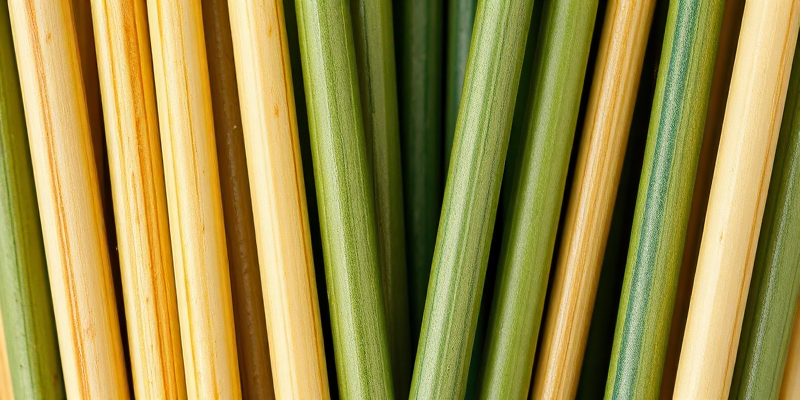
Making the switch to sugarcane straws delivers measurable busines advantages beyond simply “going green.” Let’s explore the concrete benefits that make this transition a strategic busines move:
**Enhanced Brand Perception and Customer Loyalty**
A Cornell University study found that 73% of millennial and Gen Z consumers are willing to pay more for sustainable products and services, with visible eco-friendly practices directly influencing their brand loyalty. When customers see and use sugarcane straws, they experience your commitment to sustainability firsthand with every sip.
“After featuring our switch to sustainable straws in our social media, we saw a 22% increase in positive online mentions,” reports Justin, marketing director for a regional coffee chain. “Customers actively photograph and share our drinks with the natural-looking straws, giving us free promotion while highlighting our environmental values.”
**Regulatory Compliance and Future-Proofing**
With plastic straw bans implemented in over 32 countries and hundreds of municipalities worldwide, staying ahead of regulations protects your busines from sudden compliance costs and operational disruptions.
**Cost Stabilization and Predictability**
While the per-unit cost of sugarcane straws is currently higher than conventional plastic, businesses must consider the complete financial picture:
- Plastic straw prices fluctuate with petroleum markets
- Non-compliance fines can reach tens of thousands of dollars
- Consumer boycotts of non-sustainable businesses impact revenue
When calculated comprehensively, the slight premium for sustainable straws represents insurance against these larger financial risks.
**Operational Simplicity**
Unlike reusable alternatives that require washing protocols, staff training, and management of lost items, sugarcane straws integrate seamlessly into existing operations. They arrive ready to use and can be composted with food waste, potentially reducing your waste management costs.
Discover the comprehensive busines analysis that makes sugarcane straws a sound investment for forward-thinking hospitality companies. The initial cost difference becomes increasingly justified when viewed as part of a holistic busines strategy that anticipates consumer expectations and regulatory trends.
Environmental Impact: Why Eco-Friendly Sugarcane Straws Win
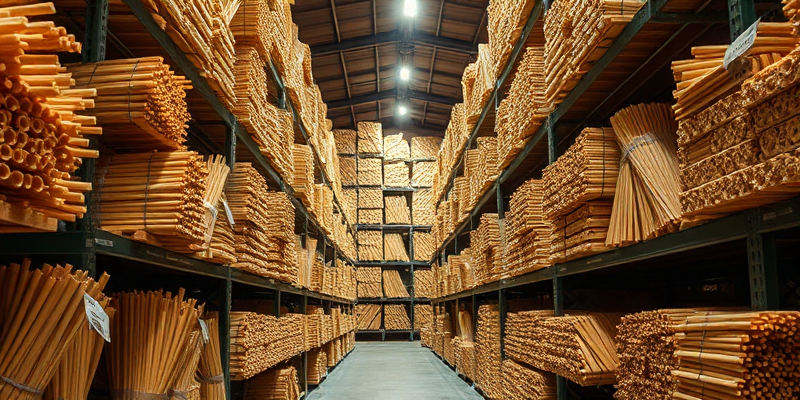
The environmental advantages of sugarcane straws extend far beyond simply “not being plastic.” When we examine their full lifecycle, a compelling ecological story emerges.
Perhaps most remarkable is the carbon equation: sugarcane plants sequester carbon dioxide during growth, making sugarcane products potentially carbon-negative in their production phase. According to research from the University of São Paulo, each hectare of sugarcane can absorb up to 60 tons of CO2 annually during cultivation, offsetting emissions from manufacturing processes.
The raw material itself represents agricultural byproduct innovation at its finest. Sugarcane straws utilize bagasse – the fibrous matter that remains after sugarcane stalks are crushed to extract their juice. By transforming this agricultural waste into valuable products, the sugarcane straw industry:
- Diverts material from being burned (previously common practice)
- Creates additional revenue streams for farming communities
- Requires no new cropland or agricultural resources
- Uses significantly les water than paper straw production
The end-of-life story is equally impressive. While plastic fragments into microplastics that persist for centuries, sugarcane straws decompose naturally in just 90 days under home composting conditions. Even in marine environments, they break down without releasing toxic compounds.
“We tested various eco alternatives for our coastal resort,” explains environmental director Elena. “Finding something that wouldn’t harm marine life if accidentally swept into the ocean was paramount. The sugarcane straws not only met our operational needs but gave us confidence in our environmental claims.”
Browse our collection of sustainable straws specifically designed for hospitality environments where both performance and environmental credentials matter. With the 国連環境プログラム urging businesses to adopt truly biodegradable alternatives to conventional plastics, sugarcane straws represent a solution aligned with global environmental priorities.
Case Study: Eco-Friendly Sugarcane Straws Succes in Action
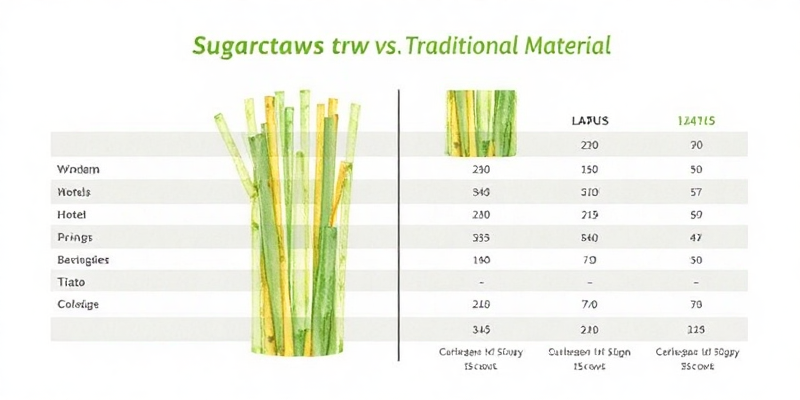
**The Ocean Breeze Resort Transformation**
When The Ocean Breeze, a 350-room beachfront resort in Costa Rica, faced both regulatory pressure and increasing guest complaints about plastic straws, management knew they needed a sustainable solution that wouldn’t compromise their premium guest experience.
“We serve approximately 2,000 drinks daily acros our pool bars, restaurants, and room service,” explains Operations Director Miguel Sanchez. “Paper straws were deteriorating too quickly in our signature tropical cocktails, resulting in guest complaints and replacement costs.”
After testing multiple alternatives, the resort implemented NatureBioEco’s sugarcane straws acros all food and beverage operations in January 2022. The results after one year were compelling:
- 912,500 plastic straws eliminated from potential ocean pollution
- 76% reduction in straw-related customer complaints
- 4.2 tons of plastic waste prevented
- 22% increase in positive social media mentions related to sustainability
- $15,200 saved in anticipated non-compliance penalties
The resort’s sustainability coordinator, Lucia Morales, noted another unexpected benefit: “Staff engagement improved significantly. Our team was proud to explain our sustainable choices to guests, creating more meaningful interactions and enhancing the overall guest experience.”
The customization options also allowed The Ocean Breeze to order straws in varying lengths and widths for different drink types – standard straws for water service, wider options for smoothies and coconut drinks, and shorter versions for cocktails.
“The investment was approximately 18% higher than our previous plastic straw budget,” acknowledges Finance Director Carlos Jimenez, “but the marketing value alone has covered that difference, not to mention avoiding fines and improving guest satisfaction scores.”
Explore how cafes and coffee shops are implementing similar sustainable straw solutions with measurable busines benefits while strengthening their environmental commitments.
よくある質問
- What makes sugarcane straws different from other plant-based straws?
- Unlike corn-based PLA straws that require industrial composting facilities, sugarcane straws are truly home compostable, breaking down naturally in 90 days. They’re made from agricultural byproducts (bagasse) rather than requiring dedicated cropland, making them more resource-efficient than many alternatives. Their performance also surpasses paper options, maintaining structural integrity for 2-3 hours in most beverages.
- How do sugarcane straws affect drink taste?
- Sugarcane straws are taste-neutral, meaning they don’t impart flavors to beverages as some paper or bamboo options might. This makes them ideal for delicate cocktails, specialty coffees, and other drinks where preserving the intended flavor profile is essential. They’re also free from glues, dyes, and chemicals that could potentially alter taste.
- What customization options are available for hotels and cafes?
- NatureBioEco offers multiple customization options: varying diameters (standard, jumbo for smoothies, coffee-specific), lengths, and packaging configurations. For larger orders, custom branding with your logo or sustainability message is available, turning everyday items into marketing opportunities. Minimum order quantities for customization typically start at 50,000 units.
- サトウキビストローの賞味期限はどれくらいですか?
- When stored properly in dry conditions, sugarcane straws maintain their quality for 24 months. They don’t require special storage beyond protection from excessive moisture before use. This extended shelf life allows businesses to order in bulk without concerns about product degradation.
- Are sugarcane straws suitable for hot beverages?
- Yes, sugarcane straws perform excellently with hot beverages, maintaining structural integrity in temperatures up to 190°F (88°C). Unlike some plastic alternatives that can leach chemicals when heated or paper straws that quickly deteriorate, sugarcane straws remain stable in hot coffee, tea, and other warm drinks without affecting taste.
- What minimum quantities are available for wholesale orders?
- NatureBioEco offers wholesale pricing starting at 10,000 units, with significant volume discounts at 25,000, 50,000, and 100,000+ units. Custom packaging configurations are available for orders of 25,000+. For hospitality groups or distributors, container-load pricing provides maximum cost efficiency for orders of 1M+ units.
- How do sugarcane straws help with regulatory compliance?
- Our sugarcane straws meet or exceed regulations in all territories with plastic straw restrictions, including the EU Single-Use Plastics Directive, California’s AB 1884, and similar legislation worldwide. Each shipment includes certification documentation for both food safety and environmental claims, simplifying compliance verification during inspections or sustainability audits.







